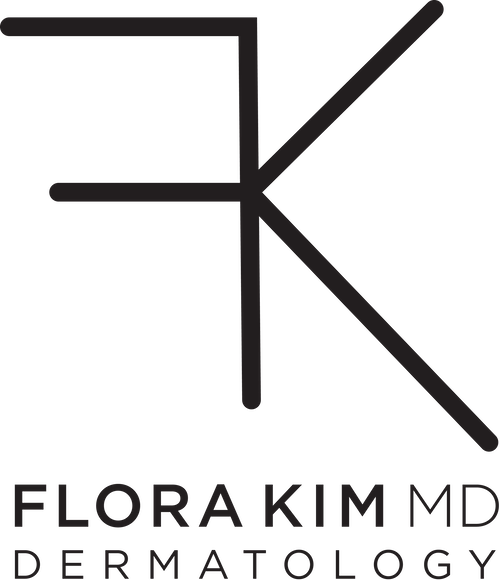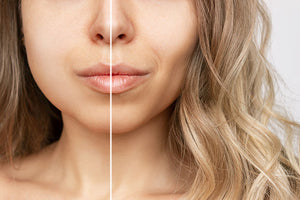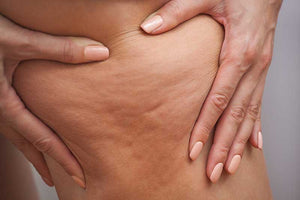What Is Hair Thinning?

Did you know that the average person loses 50 to 100 hairs each day? It is completely normal for hair to shed or break — older hair must naturally fall out for new hair to grow. But over time, some hair shafts can become finer, and the hair follicle can stop producing new hair altogether.
This is a process known as hair thinning, and it’s much more common than you might think. And it is very challenging to treat, so the sooner you intervene, the better.
What Causes Hair Thinning
Hair thinning refers to minor or moderate hair loss. Hair thinning does not necessarily cause baldness or bald patches like widespread hair loss. Rather, it gives the appearance of thinner areas of hair on your head. Thinning hair is typically the result of finer hair shafts or inactive hair follicles. Even a loss of pigment in the hair can contribute to the appearance of thinning hair.
Hair thinning normally happens gradually, which means you have time to consult with a dermatologist to discover the root cause of the issue. Generally speaking, hair thinning can be caused by lifestyle habits, stress levels, certain medical conditions, genetics, or a combination of different factors.
Key contributors to thinning hair include:
- Over-treating your hair with color treatments, relaxers or other chemicals, heat or harsh hair products
- Wearing tight hairstyles, like high ponytails or buns that tug on the hair and break it from the follicle
- Experiencing an increase in stress hormones like cortisol
- Failing to include key nutrients like iron, folic acid, biotin, and collagen in your diet
- Sharing a hereditary condition that thins hair as you age
Hair thinning is commonly confused with alopecia, which is actual hair loss. Alopecia Areata is localized hair loss and at extremes, there is Alopecia Universalis, where all hair on scalp and entire body are lost. Though thinning hair can lead to hair loss over time, the two conditions are not the same. If you think you may have alopecia, consult with a doctor.
Who Is Affected by Thinning Hair
Over half of males aged 50 and older have some degree of hair loss, and more than half of women aged 40 and older will experience hair loss. Female-pattern hair loss (FPHL) affects nearly 30 million women in the United States alone. Hair thinning is most likely to affect females following menopause or throughout significant hormonal changes, like having a baby, stopping birth control pills, or losing more than 20 pounds in a short amount of time. Any stressful event, be it physically stressful like surgery or emotionally stressful like a loss of a loved one, can contribute to hair thinning. As you can see, no one is immune to this.
What You Can Do About Hair Thinning
If you believe your hair is thinning, there are several treatment options.
- Prescription Hair Products: Specially formulated compounds that contain a collection of the most scientifically vetted prescription ingredients can be prescribed by your dermatologist in a foam or liquid solution to be applied to the scalp to stimulate hair growth and strengthen the follicle.
- Oral Prescriptions: Medications like Propecia and spironolactone treat hair loss related to hormonal fluctuation in women.
- Microneedling with Platelet Rich Plasma (PRP): Microneedling the scalp creates micro-trauma can help regenerate the health of the hair follicles.
- LED Light Therapy: LED-assisted hair regrowth increases blood flow to the scalp to stimulate hair follicles.
- Supplements and Diet: Fats, proteins, and certain vitamins and minerals like vitamin D, iron, and biotin are especially important for hair health.
- Thickening Shampoos and Conditioners: Thickening products are gentle on the hair follicle but enrich the scalp with fortifying ingredients. I recommend RevitaLash® Cosmetics Volumizing Hair Collection.
The Bottom Line
There are many methods for combatting hair thinning, however, it is most important to remember that hair thinning is extremely challenging and stubborn to treat. Thus, early intervention must be combined with a multifaceted approach incorporating a handful of modalities instead of just one. So, nurture your body with collagen and hair fortifying oral supplements, use the most effective shampoos and conditioners, apply daily RX compounds (and add oral if desired), head to your dermatologist to do a series of PRP microneedling, and do all you can to reduce stress (including stop worrying about hair thinning!).






